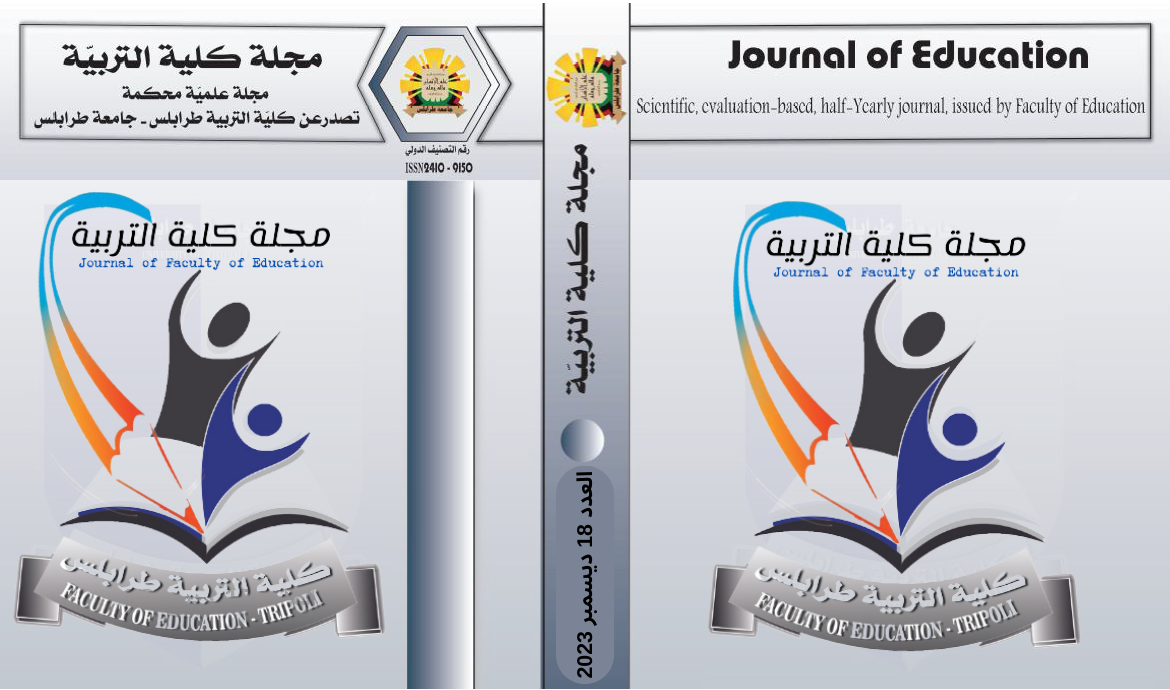تأثير النزوح الناجم عن الصراعات المسلحة في ليبيا على سلوك الأطفال
Main Article Content
Abstract
هدفت الدراسة إلى التعرف على تأثير النزوح الناجم عن الصراعات المسلحة في ليبيا على سلوك الأطفال، ولتحقيق ذلك أجريت الدراسة على عينة قوامها (105) من أطفال الأسر النازحة. وزعت على أولياء أمورهم أداة الدراسة (الاستبيان) بعد إجراء الصدق والثبات لها، وقد أشارت نتائج الدراسة إلى: 1. تعرض الأسر النازحة لمعاناة اقتصادية ونفسية، واجتماعية، وصحية بدرجة مرتفعة. 2. تعرض أطفال الأسر النازحة إلى تردي الوضع الصحي والتعليمي، وإلى حالة ما بعد الصدمة التي نجم عنها ظهور سلوكيات غير مرغوبة. 3. جميع الأطفال لديهم الرغبة في العودة إلى الموطن الأصلي. وأوصى الباحث بأن يتنبه أطراف النزاع في ليبيا إلى خطورة الموقف وانعكاساته الوخيمة على سلوك الأطفال، والعمل بشكل عاجل على إعادة الأسر النازحة لموطنها الأصلي لجمع شمل أفرادها المشتتين في أماكن مختلفة، كما يقترح الباحث إجراء دراسات مماثلة في مناطق أخرى من ليبيا.
Deletion The study aimed to investigate the impact of displacement resulting from armed conflicts in Libya on children's behavior. To achieve this, the study was conducted on a sample of 105 children from displaced families. The study's tool was a questionnaire which was distributed to those children’s parents after its validity and reliability were established. The results of the study indicated that: 1- Displaced families suffer from high levels of economic, psychological, social, and health-related hardships. 2- Children from displaced families experience a decline in their health and education, as well as undesirable behavioral changes resulting from post-traumatic stress disorder. 3- All children expressed a desire to return to their original homes. The researcher recommended that the parties involved in the conflict in Libya should be aware of the danger of the situation and its severe consequences on children's behavior. Urgent action should be taken to repatriate displaced families to their original homes to reunite them with their scattered members in different locations. The researcher also suggests conducting similar studies in other regions of Libya.

